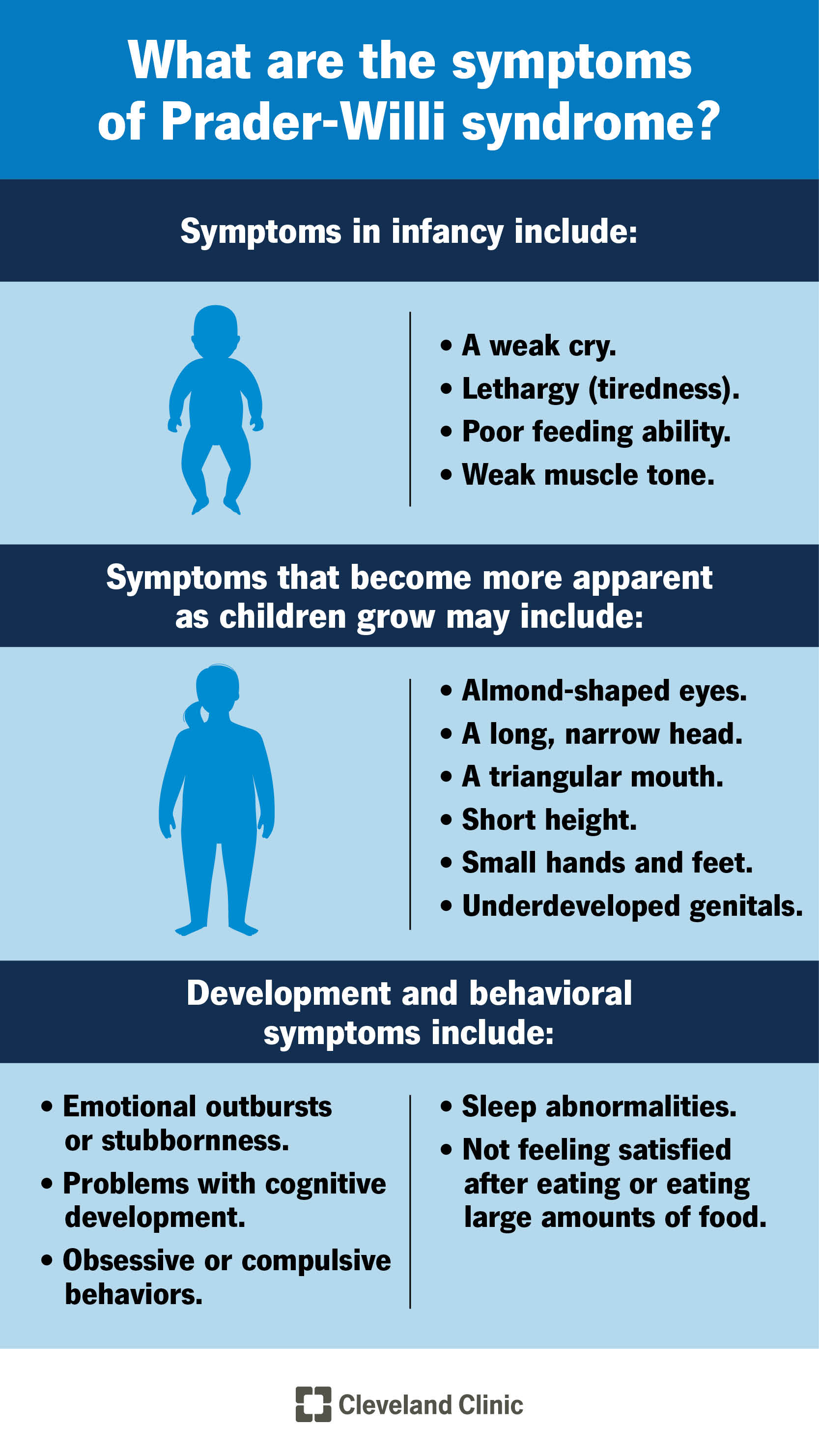
Prader-Willi syndrome affects each person differently V体育平台登录. Symptoms that appear in infancy may include:.
Symptoms that affect your child’s body may be present at birth but become more apparent as they grow VSports注册入口. These may include:.
Additional symptoms that affect your child’s development and behavior include:
Advertisement
Hyperphagia may lead to class III obesity, which increases the likelihood of other complications, such as diabetes and heart disease.
Genes on chromosome 15 that lose function cause Prader-Willi syndrome. At conception, you inherit one copy of chromosome 15 from each of your biological parents. The paternal copy of chromosome 15 is the only one that activates or turns on. The maternal copy is turned off. Both copies are necessary for your genes to get the instructions your body needs to function V体育2025版. This process is called genomic imprinting.
There are different causes of this genetic change to chromosome 15:
Chromosome 15 is responsible for providing instructions for making small nucleolar RNAs (snoRNAs) VSports app下载. The job of snoRNAs is to regulate the function of other RNA molecules. RNA molecules create proteins that help cells complete many functions within your body. A change to chromosome 15 limits its ability to create snoRNAs or they don’t receive the instructions they need to complete their jobs correctly.
A healthcare provider will diagnose Prader-Willi syndrome after a physical exam and genetic tests. A provider will look for physical signs of the condition during the exam and ask you questions about your child’s symptoms, including their eating habits and behavior. If your provider suspects PWS, they’ll run a genetic test, which is a blood test that detects abnormalities due to changes to your child’s DNA.
Treatment for Prader-Willi syndrome focuses on managing symptoms and preventing complications. Treatment could include:
Advertisement
Many people with Prader-Willi syndrome develop obesity from overeating. Complications from obesity may include:
Obesity is a complex but manageable condition. Your child’s healthcare provider can offer guidance on how you can help your child and prevent complications.
With early and ongoing treatment, many individuals with Prader-Willi syndrome have a normal lifespan. Needing extra help in school is common. Each person with PWS needs lifelong support to achieve as much independence as possible. Your provider might recommend that you visit a nutritionist to help facilitate a meal plan and diet that can help your child manage their eating. Meeting with a mental health professional or joining a support group is a great resource for parents and families. It can help them find ways to adapt and learn how to help their child grow and meet their full potential.
There isn’t a cure for Prader-Willi syndrome. Research is ongoing to learn more about the condition.
You can’t prevent Prader-Willi syndrome because it’s a genetic condition. Many cases are the result of a random genetic change that’s unpredictable and not the result of something the biological parents did before or during pregnancy. To learn more about your risks of having a child with a genetic condition, talk to your healthcare provider about genetic testing.
Advertisement
If you notice your child has signs of Prader-Willi syndrome, visit their healthcare provider. It’s especially important to see their provider if they miss developmental milestones during infancy. With an early diagnosis, your child’s provider can help you manage your child’s condition, help them meet developmental milestones and manage their diet to reduce complications from the condition.
It may be overwhelming to learn that your child has a rare genetic condition without a cure. Your child’s care team will offer support and guidance so you can give your child the care they need as they grow and develop. Your child may need more time than others their age to reach their milestones. They’ll also need supportive care throughout their life to prevent complications. If you have questions about your child’s diagnosis or how to best care for your child, talk to your child’s provider.
Advertisement
When your child shows signs of Prader-Willi syndrome, it’s time to get things checked out. Cleveland Clinic Children’s expert providers are here to guide you through every step.

Last reviewed on 01/27/2023.
Learn more about the Health Library and our editorial process.